Fiction
Fiction
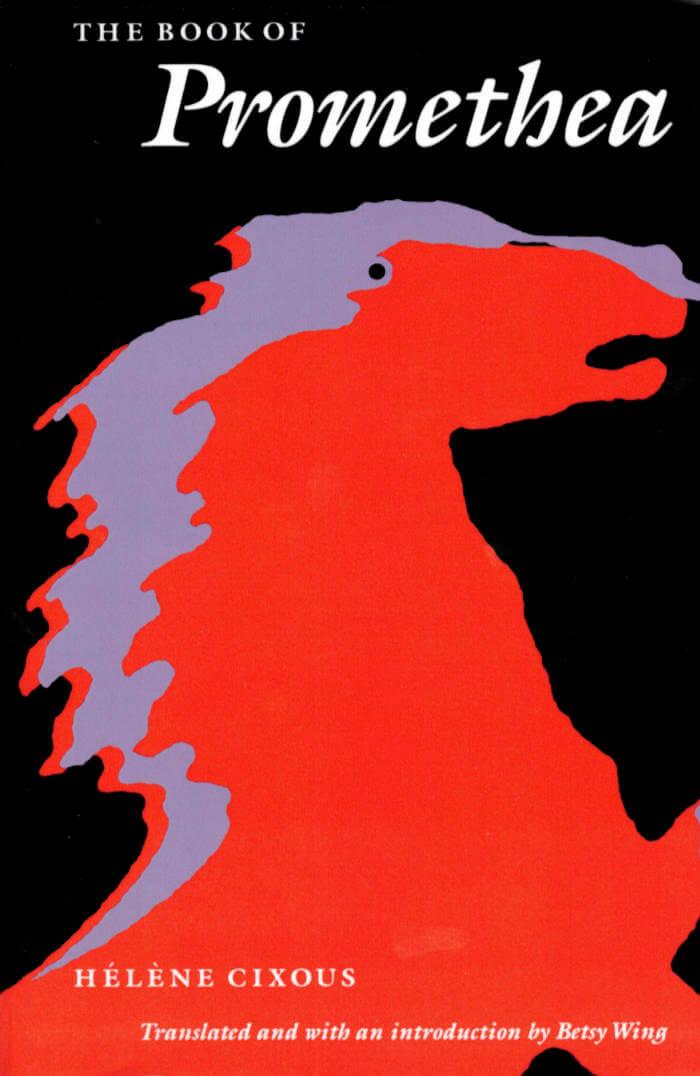
The Book of Promethea
In writing Le Livre de Promethea Hélène Cixous set for herself the task of bridging the immeasurable distance between love and language. She describes a love between two women in its totality, experienced as both a physical presence and a sense of infinity.
The result is a stunning example of écriture feminine that won kudos when published in France in 1983. Its translation into English by Betsy Wing will extend the influence of a writer already famous for her novels and contributions to feminist theory. In her introduction Betsy Wing notes the contemporary emphasis on "fictions of presence." Cixous, in The Book of Promethea, works to "repair the separation between fiction and presence, trying to chronicle a very-present love without destroying it in the writing."
Betsy Wing is a freelance translator and fiction writer. She translated Catherine Clément and Hélène Cixous's La Jeune Née (The Newly Born Woman) into English in 1986. A collection of her fiction, Look Out for Hydrophobia, was published in 1990. Hélène Cixous is also author of the play The Terrible but Unfinished Story of Norodom Sihanouk, King of Cambodia, translated by Juliet Flower MacCannell, Judith Pike, and Lollie Groth (Nebraska 1994).
Hélène Cixous is also author of the play The Terrible but Unfinished Story of Norodom Sihanouk, King of Cambodia, translated by Juliet Flower MacCannell, Judith Pike, and Lollie Groth (Nebraska 1994). Betsy Wing is a freelance translator and fiction writer. She translated Catherine Clément and Hélène Cixous's La Jeune Née ( The Newly Born Woman) into English in 1986. A collection of her fiction, Look Out for Hydrophobia, was published in 1990.
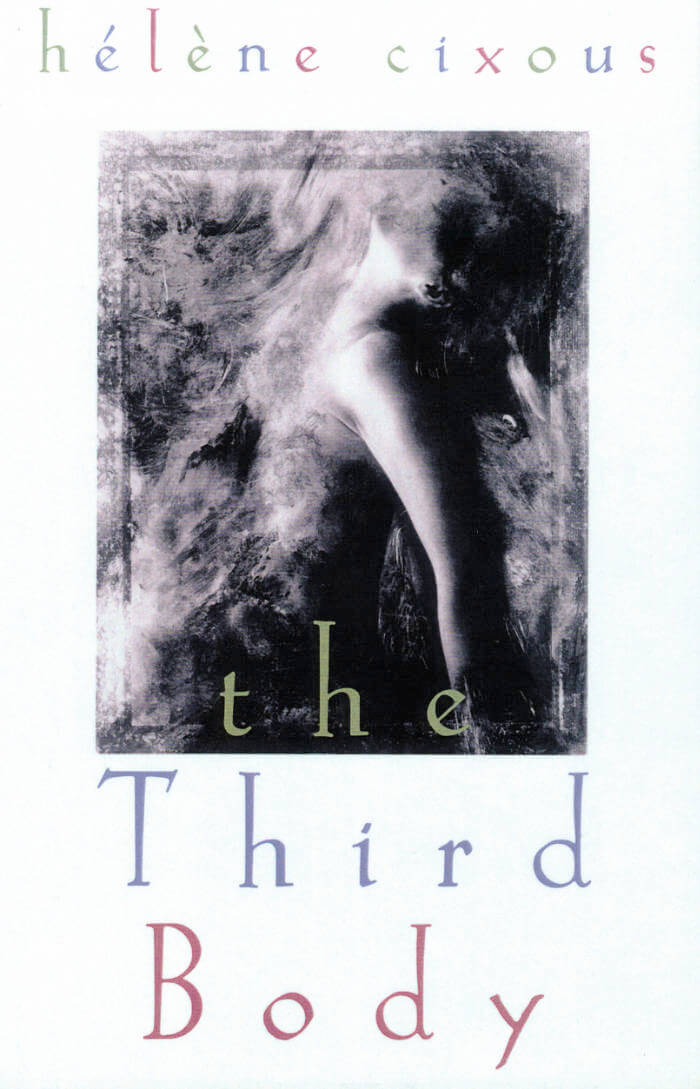
The Third Body
In The Third Body, the poet, novelist, feminist critic, and theorist Hélène Cixous interweaves a loose narrative line with anecdotes, autobiography, lyricism, myth, dream, fantasy, philosophical insights, and intertextual citations of and conversations with other authors and thinkers. Cixous evokes the relationship of the female narrator and her lover, a relationship of alternating presences and absences, separations and rejoinings. This relationship assumes protean forms within a complex web of writing, creating a third body out of the entwined bodies of the narrator and her lover.
Hélène Cixous is a professor emerita of literature and founder of the Centre d'études feminines, Paris VIII. Her numerous books include Stigmata, Three Steps on the Ladder of Writing, The Newly Born Woman, The Laugh of the Medusa, and Manhattan: Letters from Prehistory. In 2000, a collection in Cixous' name was created at the Bibliothèque nationale de France.
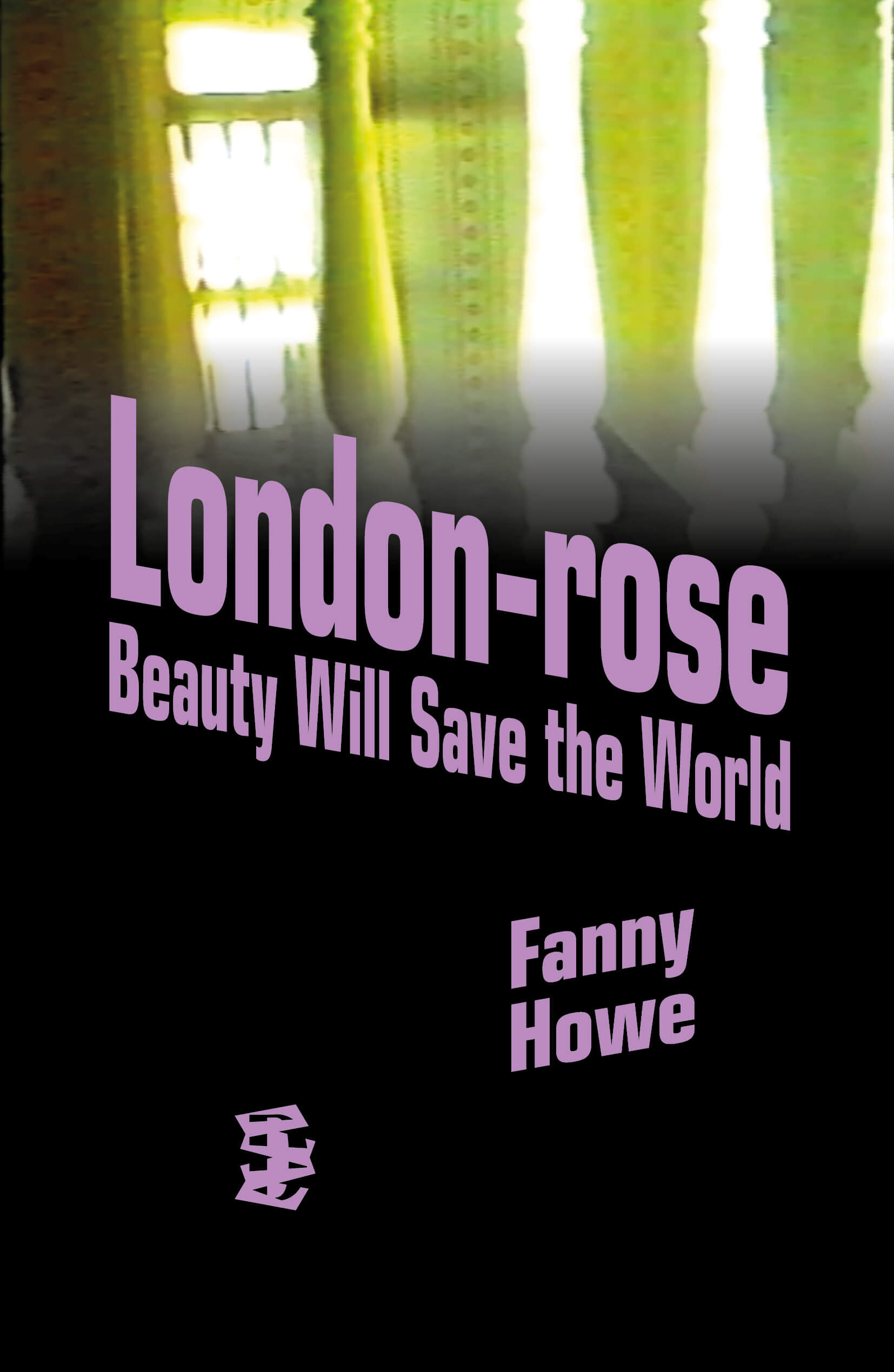
London-rose — Beauty Will Save the World
The story of failure asks one question only: What do people who lose do next? “Let the best one win.” War is one way. The other way is religion. Let me at the stakes. It’s so much a matter of patience. No fury, beyond all reason, no sequence broken, but diverted. Nothing seems to cooperate when you lose control. Blue becomes violet. Bend your head to the blank. The solution is so simple: don’t identify yourself with your description of yourself.
"It feels we aren’t reading prose but language that oscillates between liturgy and prayer." — Eugene Lim

Up Your Ass
Valerie Solanas's rarely published, legendary play, Up Your Ass, explodes social and sexual mores and the hypocritical, patriarchal culture that produces them through her signature irreverence and wit, incisiveness and camp.
The play, whose full title is Up Your Ass Or From the Cradle to the Boat Or The Big Suck Or Up from the Slime, marches out a cast of screwy stereotypes: the unknowing john, the frothy career girl, the boring male narcissist, two catty drag queens, the sex-depraved housewife, and a pair of racialized pickup artists, among others. At the center is protagonist Bongi Perez—a thinly veiled Solanas—a sardonic, gender-bending hustler who escorts us through the back alleys of her street life. The fictionalized predecessor to SCUM Manifesto, the play shares the same grand, subversive, implicative language, equally spitting and winking, embracing the margins, the scum, and selling a trick along the way.
Valerie Solanas (1936-1988) is an American radical feminist intellectual, known for her SCUM Manifesto—a pamphlet with which she declares the power of women and imagines a political future through the margin—, and for having tried to assassinate Andy Warhol.
Edited by Leah Whitman-Salkin.
With a contribution by Paul B. Preciado.
Graphic design: Roxanne Maillet.

Custody of the Eyes
A story that explores how power is enacted on and through the body—the physical, the social, and the political.
Alienation and dire frustration mount as an unnamed woman—a mother—struggles to survive in the face of state repression, neighborhood surveillance, extreme weather, and familial control. Told through one side of an epistolary exchange, the novel's letters are bookended by dense ramblings by the mother's son, who struggles to speak and write and spends most of his days in lockdown rearranging his "vessels," hysterically laughing, drooling, writhing, withdrawing—a state that will ultimately consume his mother as well. This is a story that explores how power is enacted on and through the body—the physical, the social, and the political. Custody of the Eyes (Los Vigilantes) reconfirms the essential, constitutive nature of language and expression in power and freedom.
Diamela Eltit (born 1947 in Santiago, Chile) is a Chilean writer and teacher.
Edited by Leah Whitman-Salkin.
Graphic design: Roxanne Maillet.
Published in May 2022
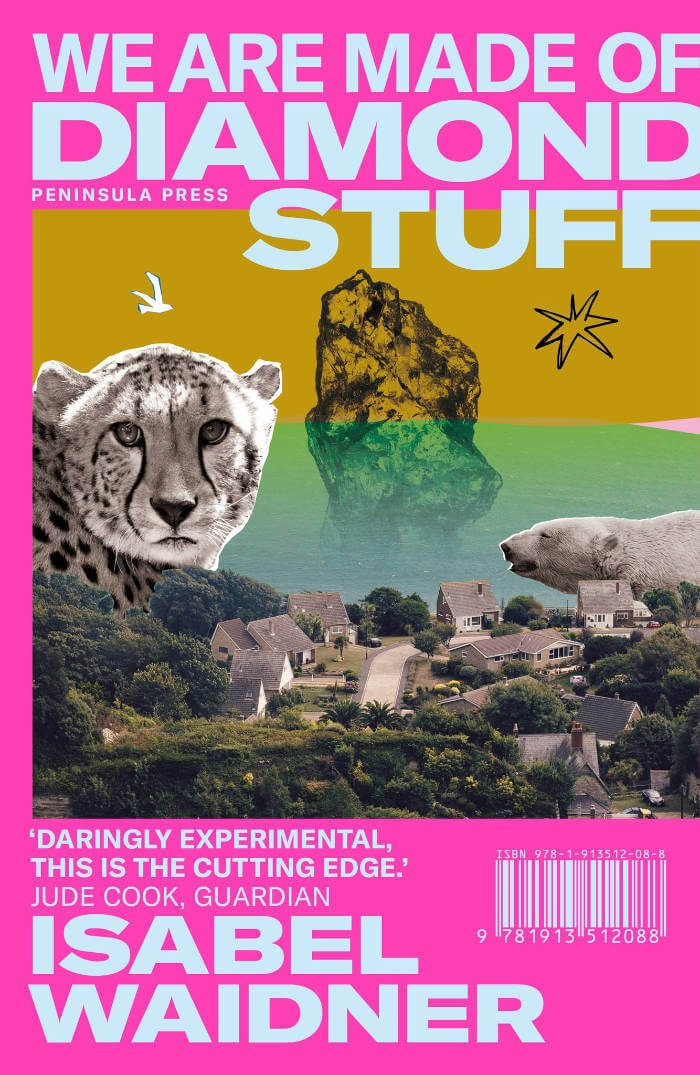
We Are Made of Diamond Stuff
Polar bears emerge from t-shirts. Reeboks come to life. Nothing is normal in the house of Mother Normal.
In Isabel Waidner’s second novel, we follow an unnamed narrator who looks like Eleven from Stranger Things, but is in fact a 36-year-old migrant working for minimum wage in a run-down hotel on the Isle of Wight. Along with their best friend, Shae, the narrator faces Ukip activists, shapeshifting creatures, and despotic bosses while trying to hold down their job and preparing for their Life in the UK test.
This is fiction that extends the avant-garde tradition beyond the upper-class experience that it usually chronicles – making it over as an ally of working-class queer experience. Set against a backdrop of austerity and decline, We Are Made of Diamond Stuff is an irreverent, boundary-erasing piece of work that celebrates the radical potential of resistance, ingenuity, and friendship.
Shortlisted for the Goldsmiths Prize and the Republic of Consciousness Prize.

Walking Through Clear Water in a Pool Painted Black, New Edition: Collected Stories
The first collected edition of legendary writer, actress, and adventurer Cookie Mueller's stories, featuring the entire contents of her 1990 book Walking through Clear Water in a Pool Painted Black, alongside more than two dozen others, some previously unpublished.
Legendary as an underground actress, female adventurer, and East Village raconteur, Cookie Mueller's first calling was to the written word: I started writing when I was six and have never stopped completely, she once confessed. Muellerís 1990 Walking through Clear Water in a Pool Painted Black, the first volume of the Semiotext(e) Native Agents series, was the largest collection of stories she compiled during her life. But it presented only a slice of Mueller's prolific work as a writer. This new, landmark volume collects all of Mueller's stories: from the original contents of Clear Water, to additional stories discovered by Amy Scholder for the posthumous anthology Ask Dr. Mueller, to selections from Mueller's art and advice columns for Details and the East Village Eye, to still new stories collected and published here for the first time. Olivia Laing's new introduction situates Mueller's writing within the context of her life—and our times.
Thanks to recent documentaries like Mallory Curley's A Cookie Mueller Encyclopedia and Chloé Griffin's oral biography Edgewise, Mueller's life and work have been discovered by a new generation of readers. Walking through Clear Water in a Pool Painted Black: Collected Stories returns essential source material to these readers, the archive of Mueller's writing itself. Mueller's many mise en scènes—the Baltimore of John Waters, post-Stonewall Provincetown, avant-garde Italy, 1980s New York, an America enduring Reagan and AIDS—patches together a singular personal history and a primer for others. As Laing writes in her introduction, Collected Stories amounts to a how-to manual for a life ricocheting joyously off the rails, a live corrective to conformity, conservatism, and cruelty.
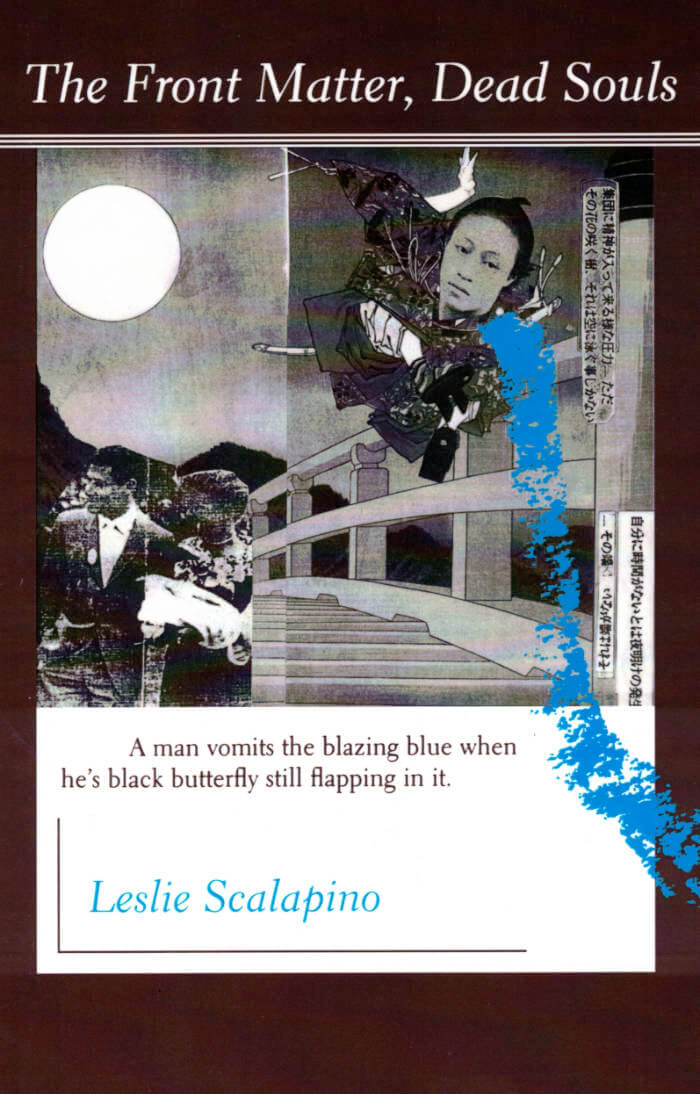
The Front Matter, Dead Souls
This extraordinary new book is essay-fiction-poetry, an experiment in form, a serial novel for publication in the newspaper that collapses the distinction between documentary and fiction.
Leslie Scalapino is widely regarded as one of the best avant-garde writers in America today. This extraordinary new book is essay-fiction-poetry, an experiment in form, a serial novel for publication in the newspaper that collapses the distinction between documentary and fiction. Loosely set in Los Angeles, the book scrutinizes our image-making, producing extreme and vivid images-hyena, Muscle Beach in Venice, the Supreme Court, subway rides-in order for them to be real. Countering contemporary trends toward interiority, Scalapino's work constitutes a unique effort to be objectively in the world. The writing is an action, a dynamic push to make intimacy in the public realm. She does not distinguish between poetry and real events: her writing is analogous to Buddhist notions of dreaming one is a butterfly, and becoming aware that actually being the butterfly is as real as dreaming it.

Modern Love
Constance DeJong’s long-neglected 1977 novel, Modern Love, is one thing made up of many: It is science fiction. It is a detective story. It is a historical episode in the time of the Armada and the dislocation of Sephardic Jews from Spain to an eventual location in New York’s Lower East Side. It is a first-person narrator’s story; Charlotte’s story; and Roderigo’s; and Fifi Corday’s. It is a 150-year-old story about Oregon and the story of a house in Oregon. Modern Love’s continuity is made of flow and motion; like an experience, it accumulates as you read, at that moment, through successive moments, right to the end.
An important figure of downtown New York’s performance art and burgeoning media art scene in the late 1970s and early 1980s, DeJong designed Modern Love herself and published it with help from Dorothea Tanning on the short-lived Standard Editions imprint. Critically acclaimed in its time, Modern Love is now back in print on the 40th anniversary of its original publication.
Constance DeJong is an artist and writer who has worked for thirty years on narrative form within the context of avant-garde music and contemporary art. Considered one of the progenitors of media art, or “time-based media,” DeJong shapes her intricate narrative form through performances, audio installations, print texts, electronic objects, and video works. Since the 1980s, DeJong has collaborated with Phillip Glass, Tony Oursler, and the Builders Association on performances and videos at Walker Art Museum, Minneapolis, MN; the Wexner Center, Columbus, OH; Philadelphia Museum of Art; and in New York, at The Kitchen, Thread Waxing Space, the Whitney Museum of American Art, and the Dia Center for the Arts. Her books include I.T.I.L.O.E. and SpeakChamber, and her work is included in the anthologies Up is Up, But So is Down: New York’s Downtown Literary Scene, 1974–1991 (NYU Press, 2006); Blasted Allegories (New Museum/MIT, 1987); and Wild History (Tanam Press, 1985).
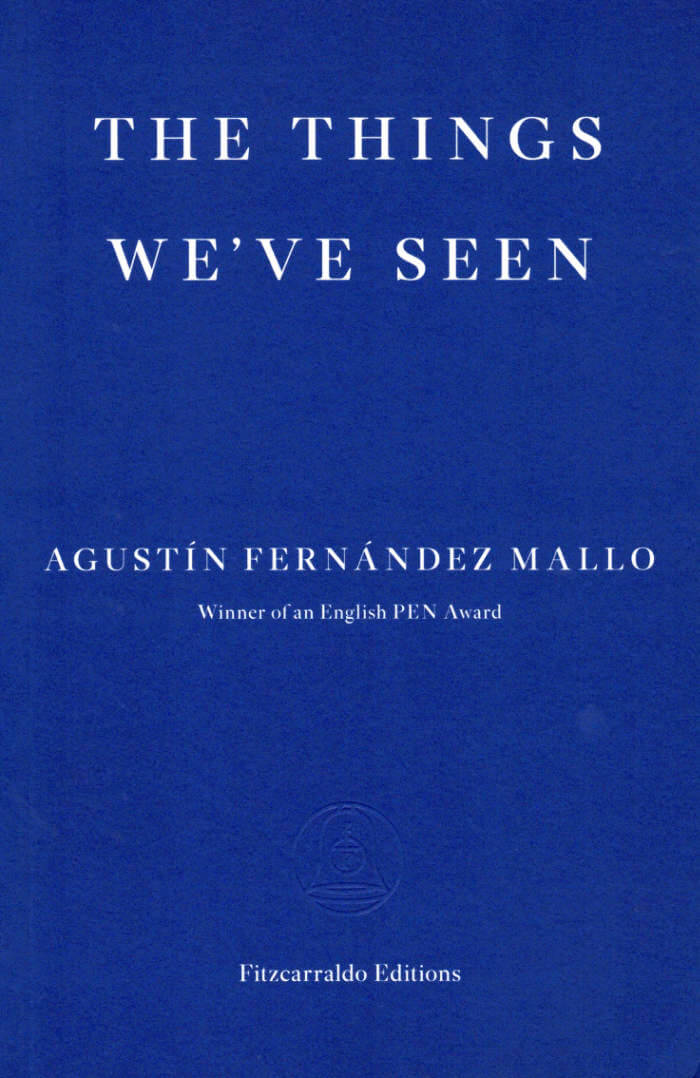
The Things We've Seen
In The Things We've Seen, his most ambitious and accomplished novel to date, Agustín Fernández Mallo captures the strangeness and interconnectedness of human existence in the twenty-first century. A writer travels to the small uninhabited island of San Simón, used as a Franquist concentration camp during the Spanish Civil War, and witnesses events which impel him on a wild goose chase across several continents. In Miami, an ageing Kurt Montana, the fourth astronaut who secretly accompanied Neil Armstrong and co. to the moon, revisits the important chapters in his life, from serving in the Vietnam War to his memory of seeing earth from space. In Normandy, a woman embarks on a walking tour of the D-Day beaches with the goal of re-enacting, step by step, another trip taken years before.
Described as the novel David Lynch and W. G. Sebald might have written had they joined forces to explore the B-side of reality, The Things We've Seen is a mind-bending novel for our disjointed times.
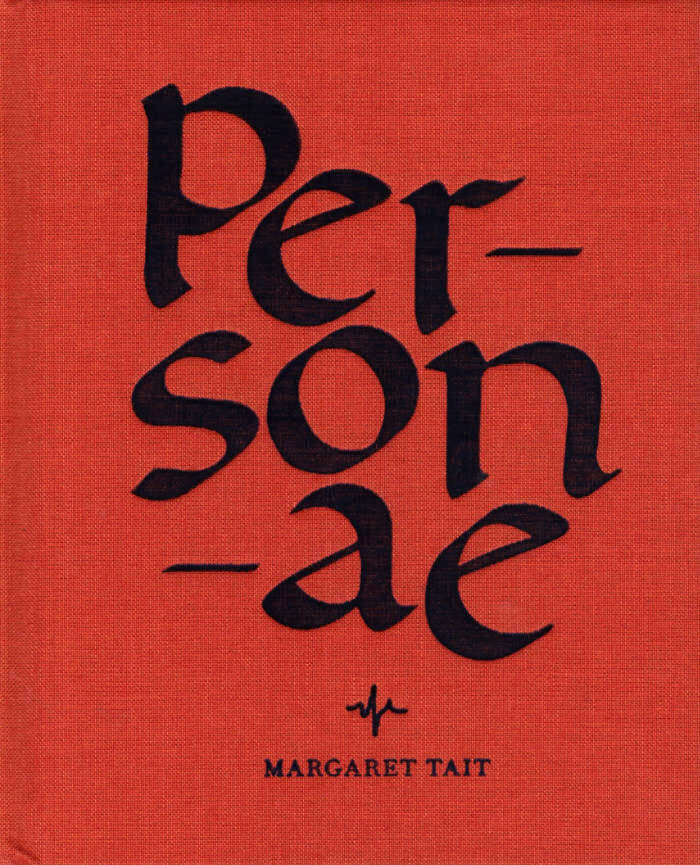
Personae
Personae is an unpublished book by Scottish filmmaker and poet Margaret Tait (1918-1999), edited by Sarah Neely with a foreword by Ali Smith
Margaret Tait (1918-1999), filmmaker and poet, is one of Scotland’s most extraordinary talents, and yet she was largely overlooked during her lifetime. Born in Orkney, she trained first as a medical doctor and served in the Royal Army Medical Corps during the Second World War, before studying film at Centro Sperimentale di Cinematographia in Rome in the early 1950s. After returning to Edinburgh, Tait established her film studio, Ancona Films, before eventually returning to Orkney in the 1960s, where she lived and continued to make films until her death in 1999.
While best known as a filmmaker, she was also a prolific writer and during her lifetime she self-published three books of poetry and two collections of short stories. Personae is her unpublished manuscript written over a number of years from 1945 onwards and painstakingly reconstructed by Sarah Neely from drafts found in the Tait archive. It is an undefinable work, part-memoir, part-experimental non-fiction; a meditation on the aftermath of war, the healing potential of the creative process, medicine, culture, relationships and an attempt to think towards a future born out of chaos. The book also offers a unique insight into the voice, mind and creative process of a singular Scottish artist whose work did not receive significant attention until after her death in 1999.

Top Stories
Top Stories was a prose periodical published from 1978 to 1991 by the artist Anne Turyn in Buffalo, New York, and New York City. Over the course of twenty-nine issues, it served as a pivotal platform for experimental fiction and art through single-artist issues and two anthologies. The entire run of Top Stories is collected and reproduced here across two volumes.
Top Stories primarily featured female artists, though in Turyn’s words a few men “crept in as collaborators.” Although primarily “a prose periodical” (as its byline often stated), the issues varied in form and aesthetics, pushing the boundaries of what prose could be and, from time to time, escaping the genre altogether. In fact, the only parameters required for participants were that the periodical’s logo and issue list be included on the front and back covers, respectively.
A great deal of the works are short stories by the likes of Pati Hill, Tama Janowitz, and Kathy Acker, whose Pushcart Prize–winning “New York City in 1979” appeared for the first time in book form as part of the series. Constance DeJong contributes “I.T.I.L.O.E.,” a widely unavailable work that features the artist’s trademark prose and is sure to please fans of her novel, Modern Love. The largest issue of the periodical is undoubtedly Cookie Mueller’s “How to Get Rid of Pimples,” which consists of a series of character studies of friends interspersed with photographs by David Armstrong, Nan Goldin, and Peter Hujar altered with freshly drawn blemishes.
Top Stories also celebrates less conventional literary forms. Issues by Lisa Bloomfield, Linda Neaman, and Anne Turyn take the form of artists’ books, juxtaposing image and text to construct tightly wound, interdependent narratives. Jenny Holzer and Peter Nadin present a collaborative work in copper ink comprised of truisms by Holzer on corporeal and emotional states and drawings by Nadin of abstract bodies. Janet Stein contributes a comic, while Ursule Molinaro provides a thorough index of daily life (and the contempt it produces) consisting of entries that were written just prior to lighting a cigarette.
Top Stories remains vitally defiant, an essential witness to what was the downtown literary and art-world underground.
Primary contributors include Kathy Acker, Laurie Anderson, Sheila Ascher, Douglas Blau, Lisa Bloomfield, Linda L. Cathcart, Cheryl Clarke, Susan Daitch, Constance DeJong, Jane Dickson, Judith Doyle, Lee Eiferman, Robert Fiengo, Joe Gibbons, Pati Hill, Jenny Holzer, Gary Indiana, Tama Janowitz, Suzanne Johnson, Caryl Jones-Sylvester, Mary Kelly, Judy Linn, Micki McGee, Ursule Molinaro, Cookie Mueller, Peter Nadin, Linda Neaman, Glenn O’Brien, Romaine Perin, Richard Prince, Lou Robinson, Janet Stein, Dennis Straus, Sekou Sundiata, Leslie Thornton, Kirsten Thorup, Lynne Tillman, Anne Turyn, Gail Vachon, Brian Wallis, Jane Warrick, and Donna Wyszomierski.
David Armstrong, Nan Goldin, JT Hryvniak, Peter Hujar, Nancy Linn, Trish McAdams, Linda Neaman, Marcia Resnick, Michael Sticht, and Aja Thorup all make appearances as well, contributing artwork for the covers or as illustrations.
Anne Turyn (b. 1954) is a photographer based in New York. Turyn’s work has been exhibited at the Museum of Modern Art, the Metropolitan Museum of Art, Kunsthalle Bern, Denver Art Museum, Walker Art Center, and Los Angeles County Museum of Art.
Published by Primary Information, 954 pgs, 21.6 × 14 cm, 2 Paperback books in Slipcase, 2022

Confidences / Majority
The uprising was staged by the minority, and a downfall is remembered by the majority.
Gilgamesh “Gil” Gupta is a theatre maker and self-defined “avant-gardist.” As a young vampire, Gil’s alienation from time, body, and identity only increases with the murder of his sire, Patrice. Seasons pass in spite of this, and Gil endeavours to circumvent inter-species edicts to foster a meaningful audience. Recognition becomes a vocation.
Confidences / Majority is a novel that presents entertainment as critical gospel. Seething a trail of cultural debris, Majority is the second instalment in Ivan Cheng’s Confidences series, which deploys a version of the vampire and performance as sites for transformation and maintenance.
Ivan Cheng (b. 1991, Sydney) produces films, objects, paintings and publications as anchors for the staging of complex and precarious spectacles. His background as a performer and musician form the basis for his using performance as a critical medium and questioning publics and accessibility. He holds an MFA in Critical Studies from Sandberg Instituut; his work has recently been presented at Voiture14 (Marseille), La Maison Pop (Montreuil), Les Urbaines (Lausanne), Volksbühne Roter Salon (Berlin), Oude Kerk (Amsterdam), Belvedere21 (Vienna), MuHKA (Antwerp), Carriageworks (Sydney), Federation Square (Melbourne). In 2017 he initiated the project space bologna.cc in Amsterdam.
Confidences / Majority is published simultaneous to Cheng’s solo presentation Milieu at Édouard Montassut, Paris.
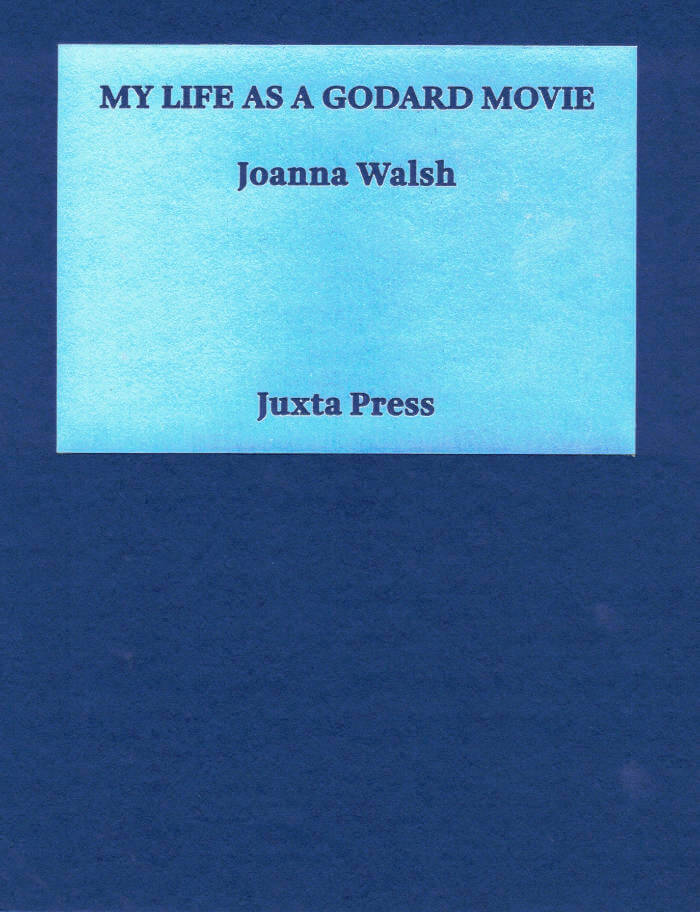
My Life as a Godard Movie
Captivated by the liberated glamour of Jean-Luc Godard’s young stars as a teenager, Joanna Walsh rediscovers his films as an adult and finds herself resisting the temptation to identify with or desire the women on film. Instead, echoing Jean-Luc Godard’s pronouncement that ‘cinema is truth at 24 frames per second’, Walsh’s essay turns its gaze on the dynamics of the camera itself and demands a new kind of art. This is an experimental, bold, and wide-ranging book that refuses to setltle for easy answers. An essential read for anyone interested in women on film.
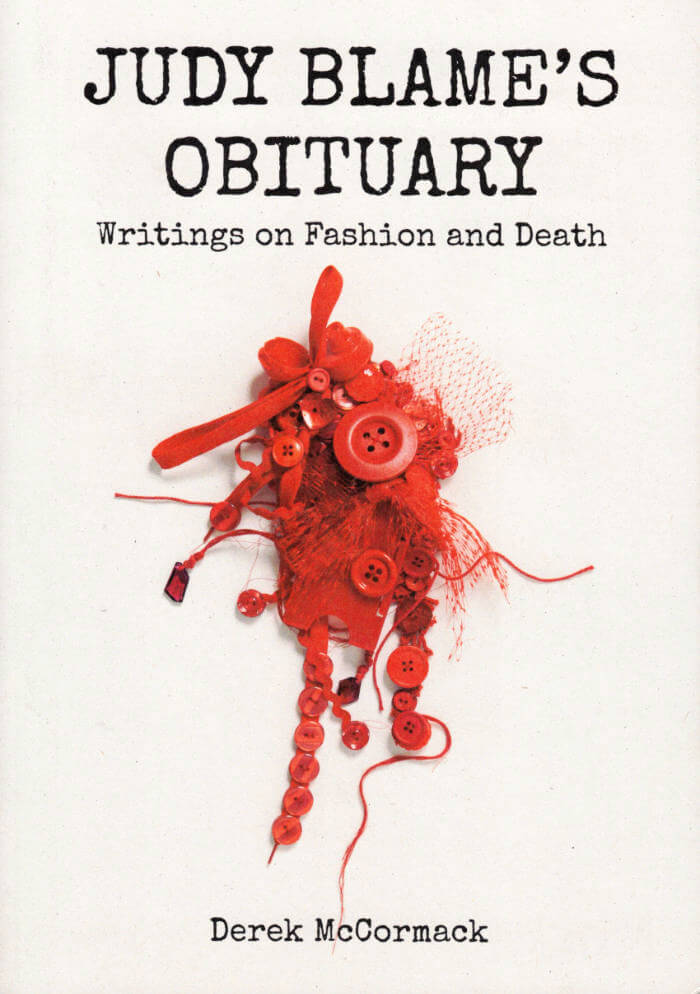
Judy Blame’s Obituary: Writings on Fashion and Death
Derek McCormack is the author of fashion-inflected novels that cast luminaries such as Elsa Schiaparelli and Balenciaga as characters. This collection brings together for the first time McCormack's fashion journalism. He writes about and interviews fashion figures that fascinate him, tracing the ways they inspire and inhabit his novels. The result is a sort of memoir in essays: as he writes, "My tribute to [Judy] Blame is about him and about me—there are lots of my own tales woven in with the topics I touch on. The writing here is a sort of autobiography, a life seen through a scrim, or a life as a scrim—my moire mémoire."
Judy Blame's Obituary contains twenty years' worth of reminiscences, reviews of fashion shows and books, interviews with writers about fashion, and interviews with fashion designers about writing. He talks to Nicolas Ghesquière about perfume, and to Edmund White about which perfume he wore as a young fag in New York City. He inspects the clothes that Kathy Acker left behind when she died, and he summons the spirit of Margiela in a literary seance. He traces the history of sequins, then recounts the cursed story of Vera West, the costume designer who dressed the Bride of Frankenstein. These pieces were all previously published, some in Artforum, some in The Believer, and some in underground publications like Werewolf Express—what binds them together is a sense that though fashion victimizes us, this victimization is sometimes a sort of salvation.
Derek McCormack is a Canadian writer. His most recent novels are The Well-Dressed Wound and Castle Faggot, both published by Semiotext(e). Of Castle Faggot, Dennis Cooper said: "It is really just one of the best books ever, and maybe the greatest novel ever written.
Praise for Judy Blame's Obituary:
'Derek McCormack, Canada's most famous author as yet unsullied by Nobel Prize or television adaptation, hides in plain sight as a fashion journalist. Parallel to his writing incantatory, scatalogical fiction, he has reviewed collections and interviewed the great and good of la mode. His divagations are often darkly hilarious and always exquisitely tailored. The sublime and the ridiculous coexist in his prose, as they do in life. Fashion victims, ignore his insights at your peril.' — William E. Jones
Published by Pilot Press, 20 × 15 cm, Softcover, 2021

How to Mend: Motherhood and Its Ghosts
In How to Mend: On Motherhood and its Ghosts, Kayfa ta’s 4th monograph, Iman Mersal navigates a long and winding road, from the only surviving picture of the author has with her mother, to a deep search through what memory, photography, dreams and writing, a search of what is lost between the mainstream and more personal representations of motherhood and its struggles. How to mend the gap between the representation and the real, the photograph and its subject, the self and the other, the mother and her child.
Iman Mersal is an Egyptian poet and associate professor of Arabic Literature and Middle Eastern Studies in the University of Alberta, Canada.
Text: Iman Mersal
Editors: Maha Maamoun and Ala Younis
Translated from Arabic by Robin Moger
Co-publishers: Kayfa ta and Sternberg Press
Design: Julie Peeters
Size: 9.6 x 14.8 cm
Pages: 168 pages, Soft cover
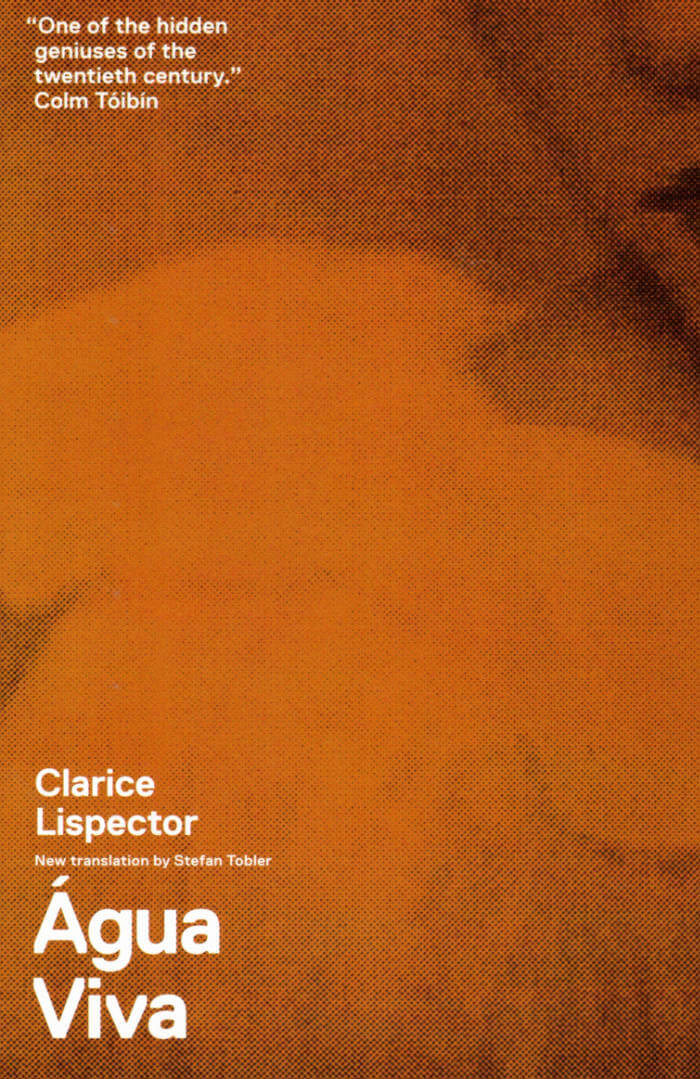
Água Viva
In Água Viva Clarice Lispector aims to 'capture the present'. Her direct, confessional and unfiltered meditations on everything from life and time to perfume and sleep are strange and hypnotic in their emotional power and have been a huge influence on many artists and writers, including one Brazilian musician who read it one hundred and eleven times. Despite its apparent spontaneity, this is a masterly work of art, which rearranges language and plays in the gaps between reality and fiction.
Clarice Lispector (December 10, 1920 – December 9, 1977) was a Brazilian writer acclaimed internationally for her innovative novels and short stories. Born to a Jewish family in Podolia in Western Ukraine, as an infant she moved to Brazil with her family, amidst the disasters engulfing her native land following the First World War.
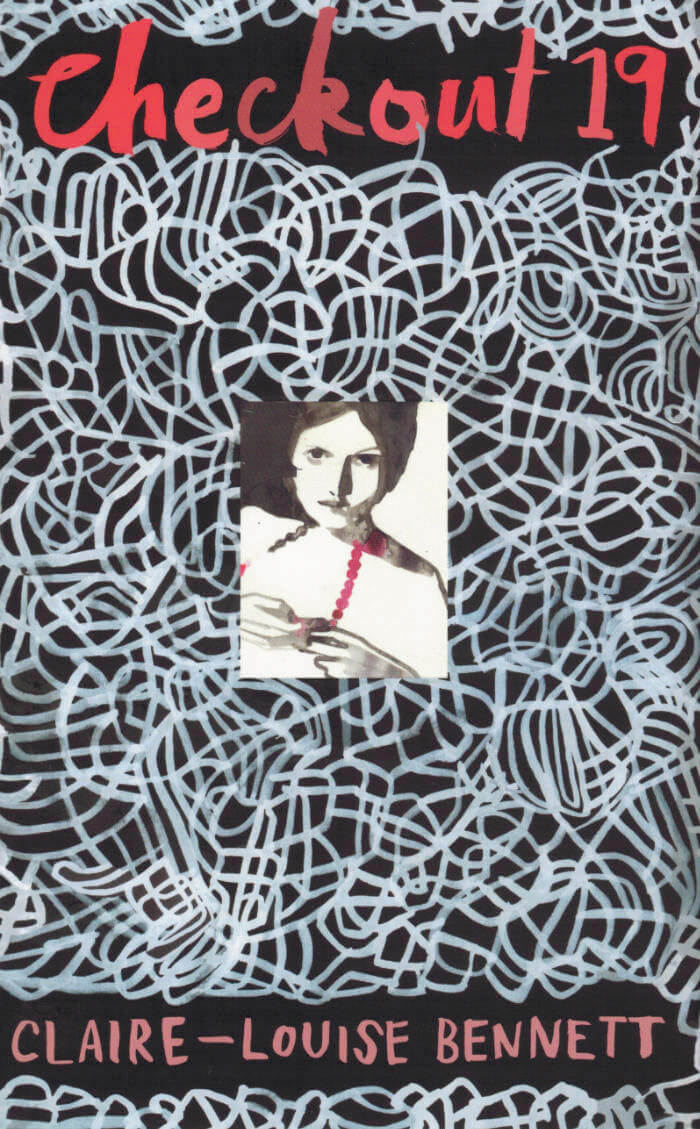
Checkout-19
In a working-class town in a county west of London, a schoolgirl scribbles stories in the back pages of her exercise book, intoxicated by the first sparks of her imagination. As she grows, everything and everyone she encounters become fuel for a burning talent. The large Russian man in the ancient maroon car who careens around the grocery store where she works as a checkout clerk, and slips her a copy of Beyond Good and Evil. The growing heaps of other books in which she loses-and finds-herself. Even the derailing of a friendship, in a devastating violation. The thrill of learning to conjure characters and scenarios in her head is matched by the exhilaration of forging her own way in the world, the two kinds of ingenuity kindling to a brilliant conflagration.

The Buddhist
While ending an affair with a Buddhist teacher, Dodie Bellamy wrote about it simultaneously on her blog. This experiment in writing in extremis explores nuances of public shame, the vagaries of desire and rage, and Bellamy's confusion over the authenticity of group and individual spirituality. What is personal, what is public? In the electronic age, can anybody tell the difference?
The Buddhist celebrates marginalized subjectivity as enacted in the work of female artists from Bessie Smith to Eva Hesse and Carolee Schneeman, to Bhanu Kapil and Ariana Reines. The Allone Co. Edition contains the essence of the blog, as well as more extended narratives too explicit to post on line.
Design by Wayne Smith
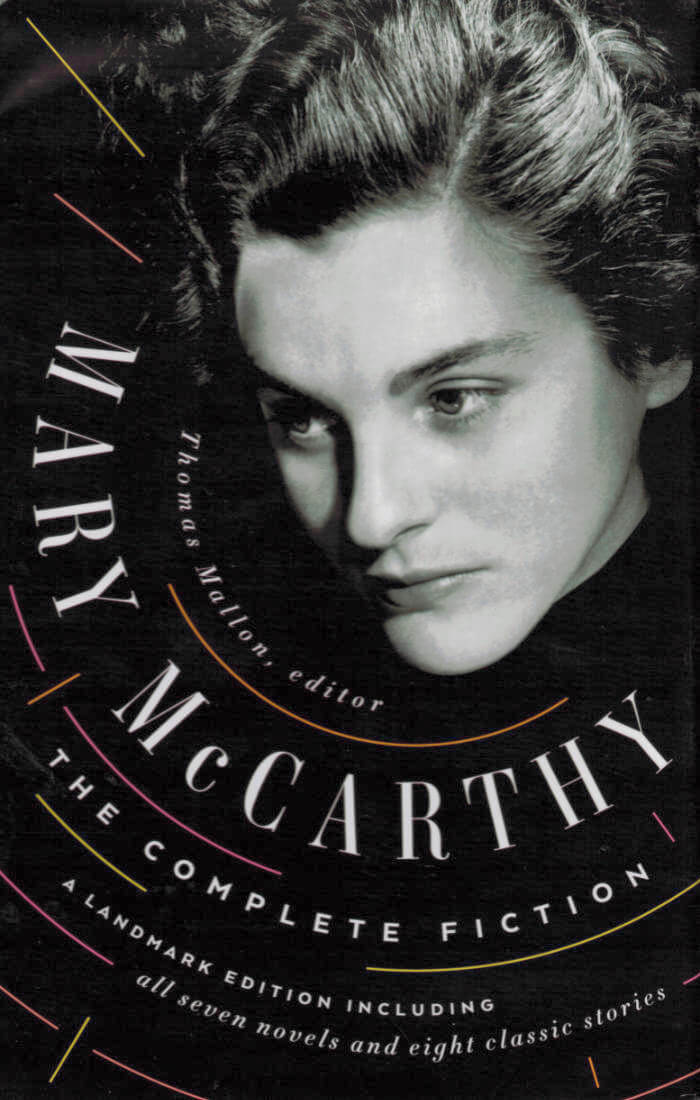
Mary McCarthy: The Complete Fiction
Seventy-five years ago Mary McCarthy provoked a scandal with her electrifying debut novel, The Company She Keeps (1942), announcing the arrival of a major new voice in American literature. A candid, thinly-veiled portrait of the late-1930s New York intellectual scene, its penetrating gaze and creative fusion of life and literature — mutual plagiarism, she called it—became the hallmark of McCarthy's fiction, which the Library of America now presents in full for the first time in deluxe collector's edition.
The Oasis (1949), a wicked satire about a failed utopian community, and The Groves of Academe (1952), a pioneering campus novel depicting the insular and often absurd world of academia, burnished her reputation as an acerbic truth-teller, but it was with A Charmed Life (1955), a searing story of small-town infidelity, that McCarthy fully embraced the frank and avant-garde treatment of gender and sexuality that would inspire generations of readers and writers.
In McCarthy's most famous novel, The Group (1963), she depicts the lives of eight Vassar College graduates during the 1930s as they grapple with sex, sexism, money, motherhood, and family. McCarthy's final two novels— Birds of America (1971), a coming of age tale of 19-year-old Peter Levi, who travels to Europe during the 1960s, and Cannibals and Missionaries (1979), a thriller about a group of passengers taken hostage on an airplane by militant hijackers—are both concerned with the state of modern society, from the cross-currents of radical social change to the psychology of terrorism.
Also included are all eight of McCarthy's short stories, four from her collection Cast a Cold Eye (1950), and four collected here for the first time. As a special feature, the second volume contains McCarthy's 1979 essay The Novels that Got Away, on her unfinished fiction.
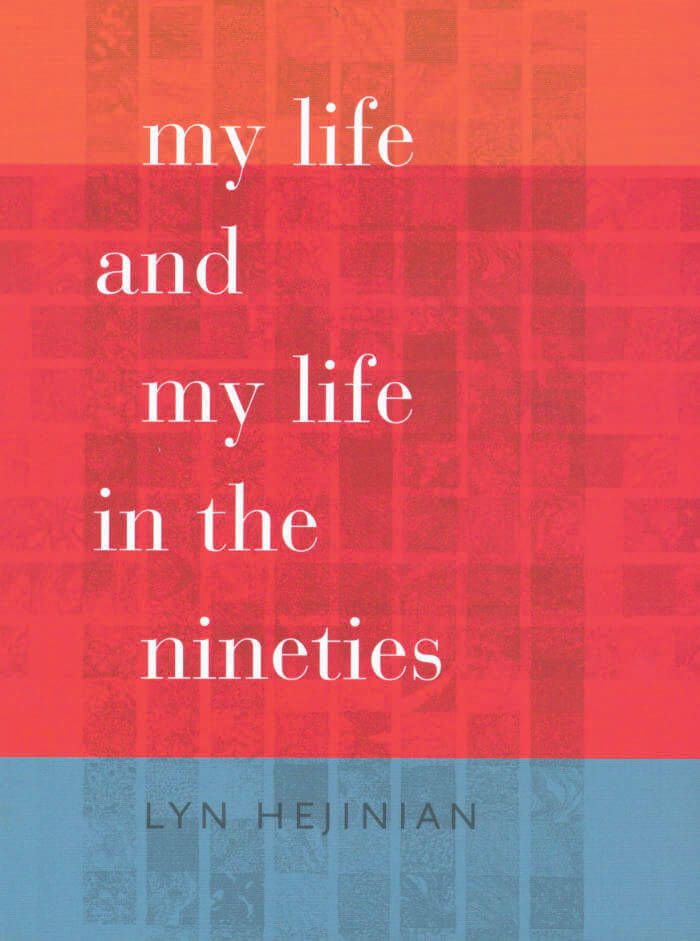
My Life and My Life in the Nineties
New edition of one of the founding works of Language writing.
Lyn Hejinian is among the most prominent of contemporary American poets. Her poem My Life has garnered accolades and fans inside and outside academia. First published in 1980, and revised in 1987 and 2002, My Life is now firmly established in the postmodern canon. This Wesleyan edition includes the 45-part prose poem sequence along with a closely related ten-part work titled My Life in the Nineties. An experimental intervention into the autobiographical genre, My Life explores the many ways in which language — — the things people say and the ways they say them — shapes not only their identity, but also the very world around them.

A Map to the Door of No Return: Notes to Belonging
A Map to the Door of No Return is a timely book that explores the relevance and nature of identity and belonging in a culturally diverse and rapidly changing world. It is an insightful, sensitive and poetic book of discovery. Drawing on cartography, travels, narratives of childhood in the Caribbean, journeys across the Canadian landscape, African ancestry, histories, politics, philosophies and literature, Dionne Brand sketches the shifting borders of home and nation, the connection to place in Canada and the world beyond.
The title, A Map to the Door of No Return, refers to both a place in imagination and a point in history — the Middle Passage. The quest for identity and place has profound meaning and resonance in an age of heterogenous identities. In this exquisitely written and thought-provoking new work, Dionne Brand creates a map of her own art.
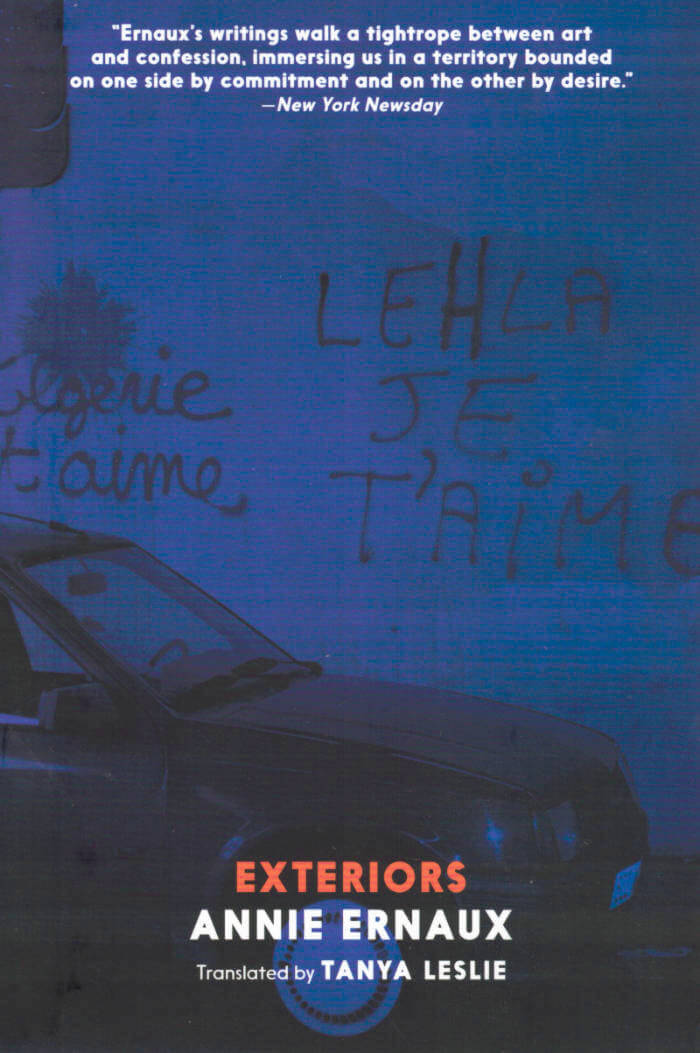
Exteriors
Taking the form of random journal entries over seven years, Exteriors captures the feeling of contemporary living on the outskirts of Paris. Poignantly lyrical, chaotic, and strangely alive.
Born in 1940, ANNIE ERNAUX grew up in Normandy, studied at Rouen University, and began teaching high school. From 1977 to 2000, she was a professor at the Centre National d'Enseignement par Correspondance. Her books, in particular A Man's Place and A Woman's Story, have become contemporary classics in France. She won the prestigious Prix Renaudot for A Man's Place when it was first published in French in 1984. The English edition was a New York Times Notable Book and a finalist for the Los Angeles Times Book Prize. The English edition of A Woman's Story was a New York Times Notable Book.
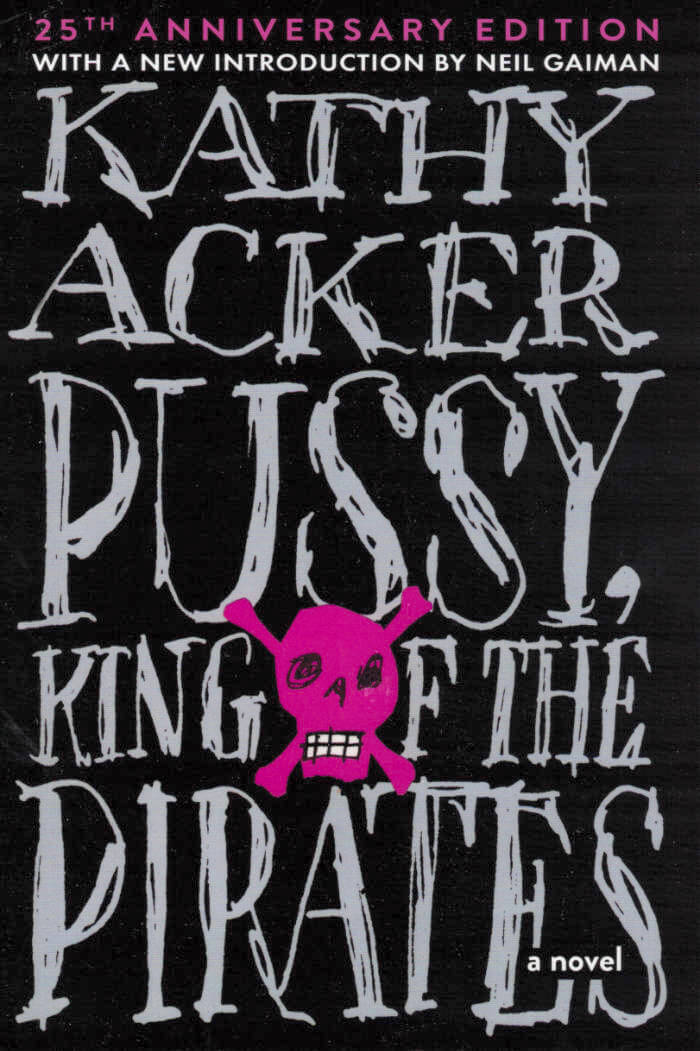
Pussy, King of the Pirates
Loosely related to Robert Louis Stevenson's classic Treasure Island, Pussy, King of the Pirates is a grrrl pirate story that journeys from the most famous whorehouse in Alexandria through an unidentified, crumbling city that may or may not be sometime in the future, to Brighton Town, England, and, finally, to a ship headed toward Pirate Island, where the stories converge and the vision ends.
Ransacking world history, literature, and language itself to speak to the current zeitgeist, Pussy, King of the Pirates is the literary analogue to the wild girl energy that dominates our rock and roll culture in the 1990s. A daring and passionate litany of disparate narratives and voices, poetry and prose, words and images, Kathy Acker's newest novel is perhaps her most subversive to date. Her meditations on love, sex, death, and art have made her a writer like no one else working today.